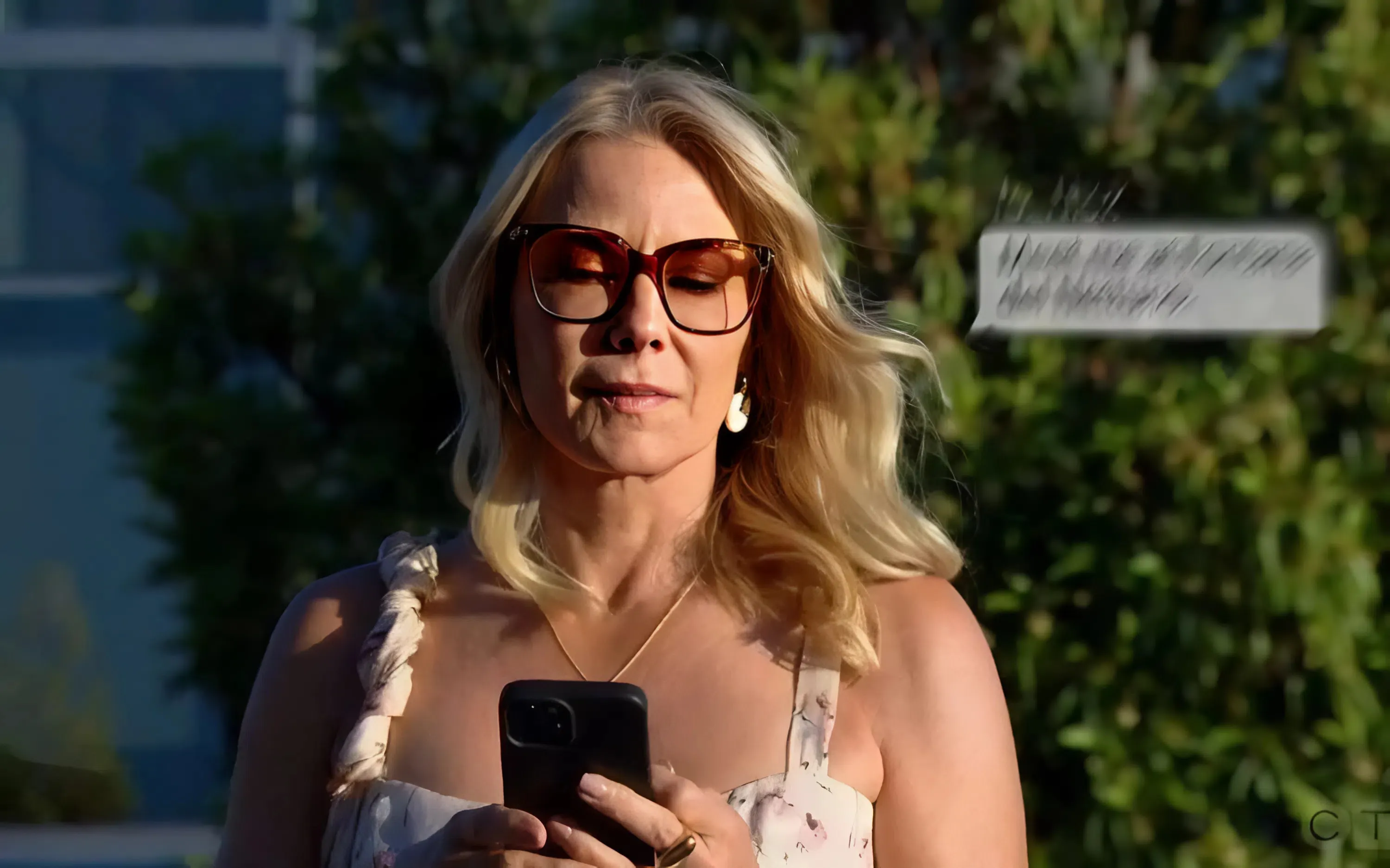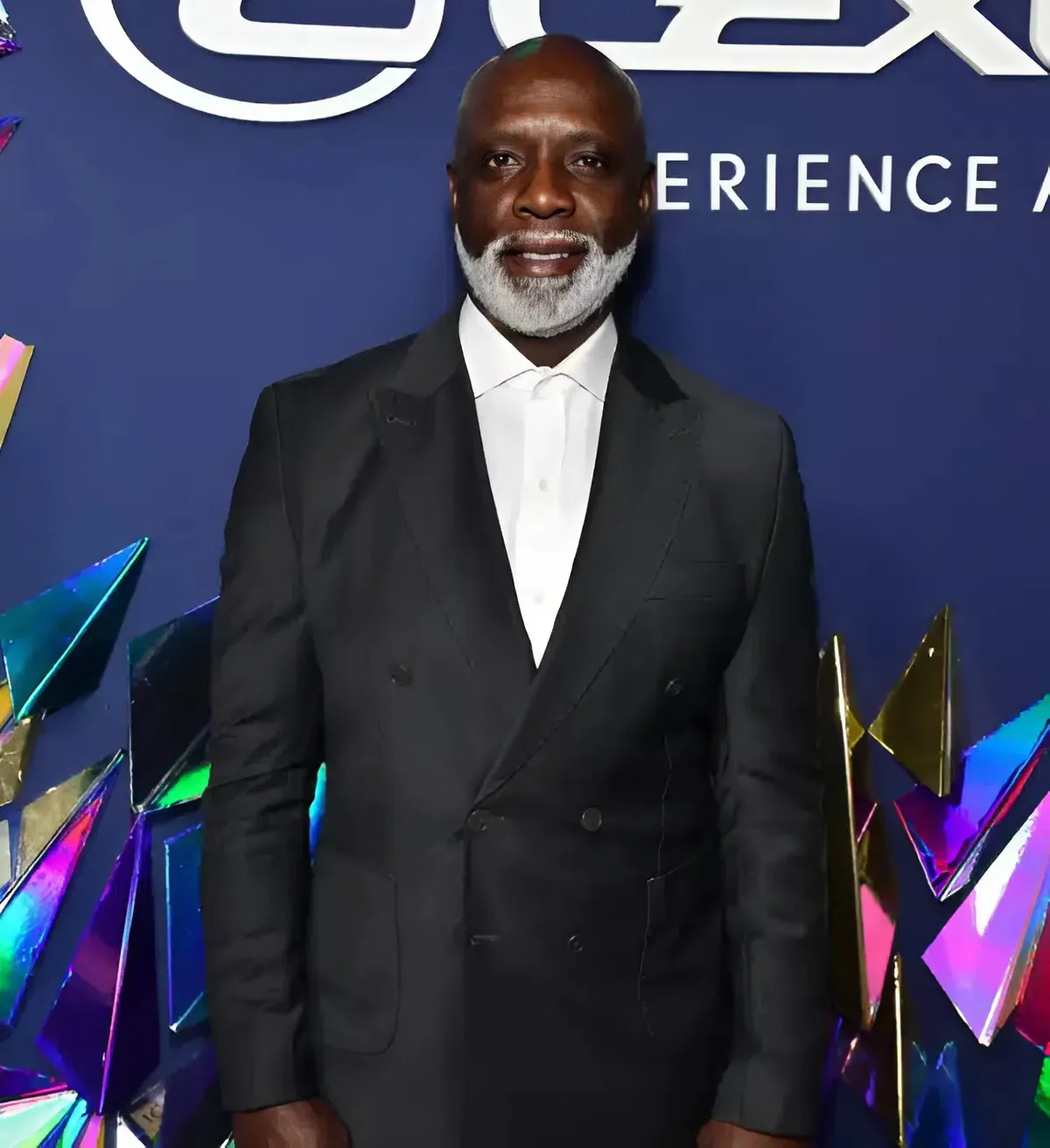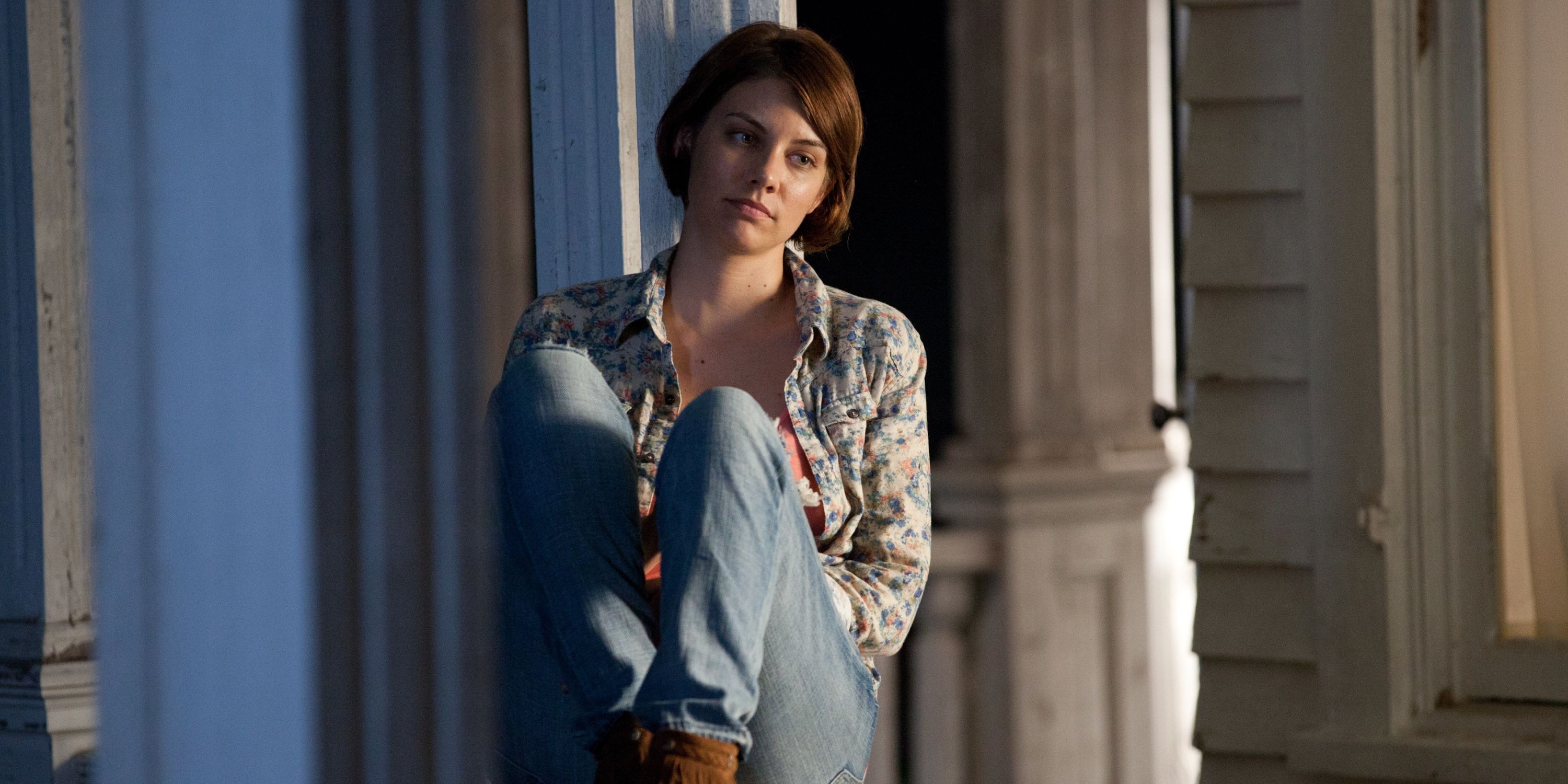
An actor is very fortunate to have a multi-season run on a series. An actor is even more fortunate to get to see a series through to its natural conclusion. Lauren Cohan went above and beyond that with her Walking Dead journey. Not only did she play Maggie in over 100 episodes of the main series, but then she got to go on to headline a spin-off series opposite Jeffrey Dean Morgan, and that spin-off series earned her her very first executive producing credit and now her very first directing credit as well. She’s a key component of one of the biggest television empires ever created, and she’s making the most of the opportunities that franchise affords her - opportunities she’s earned.
The Walking Dead: Dead City picks up a number of years after the events of the main series. When Hershel (Logan Kim) is kidnapped by the Croat (Željko Ivanek) and taken to Manhattan, Maggie must turn to Negan (Jeffrey Dean Morgan) for help. While Maggie does manage to make it off the island with Hershel, Negan is pressured to remain by The Dama (Lisa Emery). Season 2 kicks off about a year later with the New Babylon Federation conscripting the residents of The Bricks to head into Manhattan for an expeditionary mission tied to their agenda to ultimately retake it. Maggie agrees to go, but only if no one else from her community is forced to do the same. So back to Manhattan she goes, along with a stubborn Ginny (Mahina Napoleon) and a stowaway Hershel.
Lauren Cohan Was Encouraged Not to Move to LA
“This agent was like, ‘Don't go to LA. You'll just become a TV actress. Here, you could be a star.’”
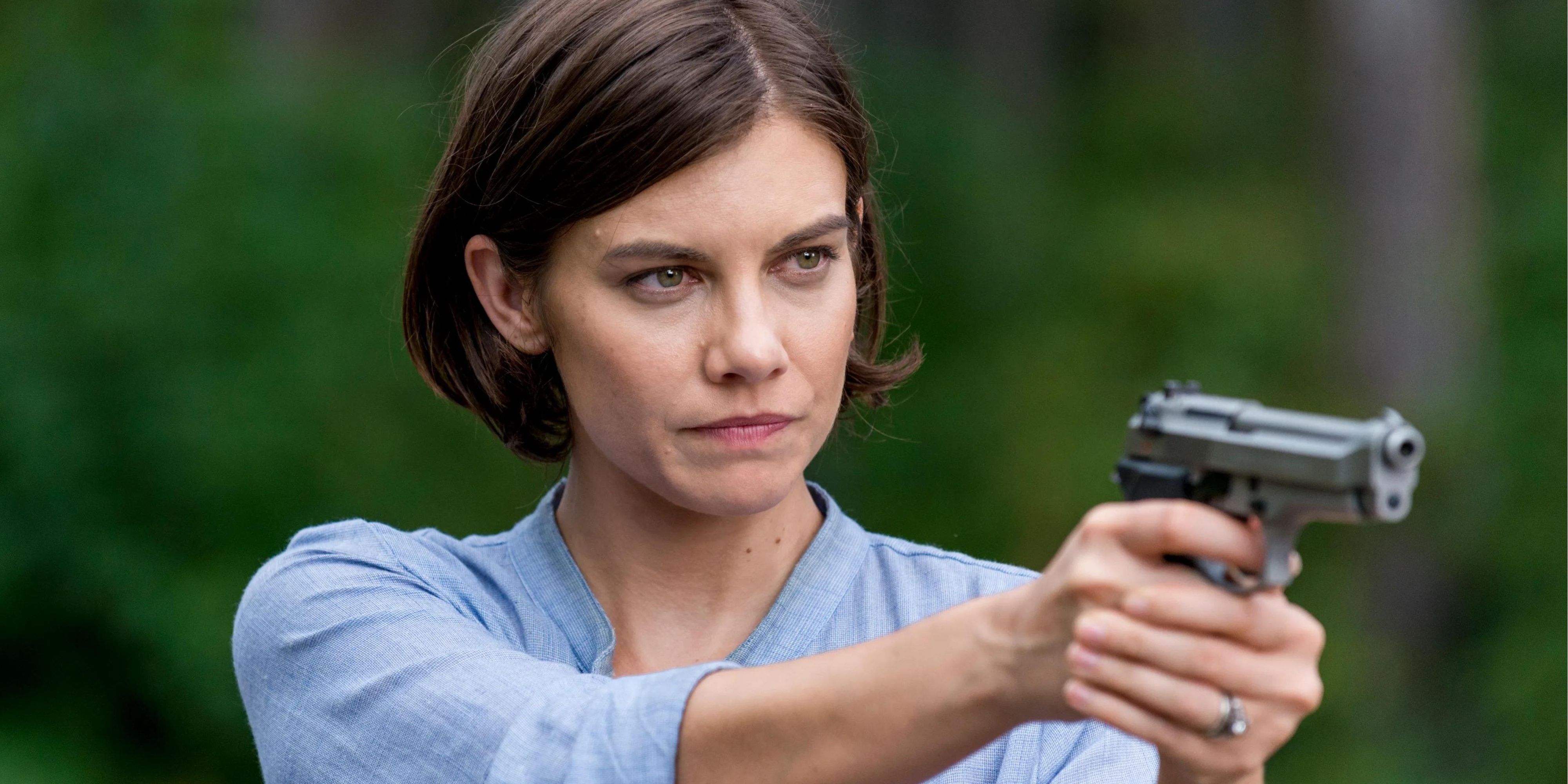
An early challenge many artists encounter is finding representation. It’s tough enough to secure any team, but an important layer to that challenge is finding the right team, people who won’t just get a client work, but get them the work that aligns with their personal creative goals. Cohan experienced a little trial and error in that department before finding the path that suited her best. She began:
“When I was 16 or something, I went to this thing called The Clothes Show. It's in Manchester, and it's where fashion students put their designs on catwalks. It's like a fashion convention type thing. When I was younger, I was incredibly bony and very, very slim, and people were like, ‘Oh, you should try modeling.’ I went with a friend to The Clothes Show and they were like, ‘There are agents there, and they spot people. If you get spotted, it's great.’ … I went and I did this thing and I got spotted by a modeling agent and I started to do catalog modeling. It was amazing because it paid my way through college and I didn't come out of school with debt. I didn’t particularly like modeling at all, and it ironically gave me so many body issues. It wasn't for me, and that's fine. But it did a lot for me in terms of financial independence.”
From there, it was on to the Edinburgh Festival Fringe, a festival of performing arts dedicated to producing and enjoying art of every genre. In some cases, the event also connects emerging artists with agents.
“We took Pygmalion and we had this module called Exploding the Canon, where you just subvert the whole premise of a play. We had so much fun doing it because the best of that, as anybody knows who does theater, who loves the arts, is we were on a shoestring budget. We were all living together, we were doing anything we could to promote our show and spend no money doing it. You're up every day and then you're out in the streets acting out scenes from your play through the city of Edinburgh and just doing everything you can. It was awesome. And then, during that time, I met this other acting agent.”
At that time, Cohan had already applied for drama school and assumed that’d be her next step. However, this agent recommended postponing drama school if she started to book roles, and, sure enough, she did. While Cohan did take that piece of advice, that agent did make another suggestion she’d ultimately opt to pass on. “She didn't want me to move to LA, I remember, and I did move to LA anyway.” Cohan continued:
“I'm American, right? I'm English. I had spent this time in the UK and I felt like I associated with it very strongly, but there was a certain kind of shine to LA. I'd come out here — my aunt lives here — and I was enamored with the difference and the excitement. I came out for one pilot season and there was just so many auditions and it was so full, and nothing came of it the first pilot season I came, so I went back to England. This agent was like, ‘Don't go to LA. You'll just become a TV actress. Here, you could be a star.’ And here I am, a TV person, but with a lot of success.”
Not only is Cohan a successful TV actress, but she’s a successful TV actress at the core of one of the greatest TV empires ever created - The Walking Dead.
Cohan Instantly Knew Who Maggie Was During Her ‘Walking Dead’ Audition
"There was an optimism that I related to."
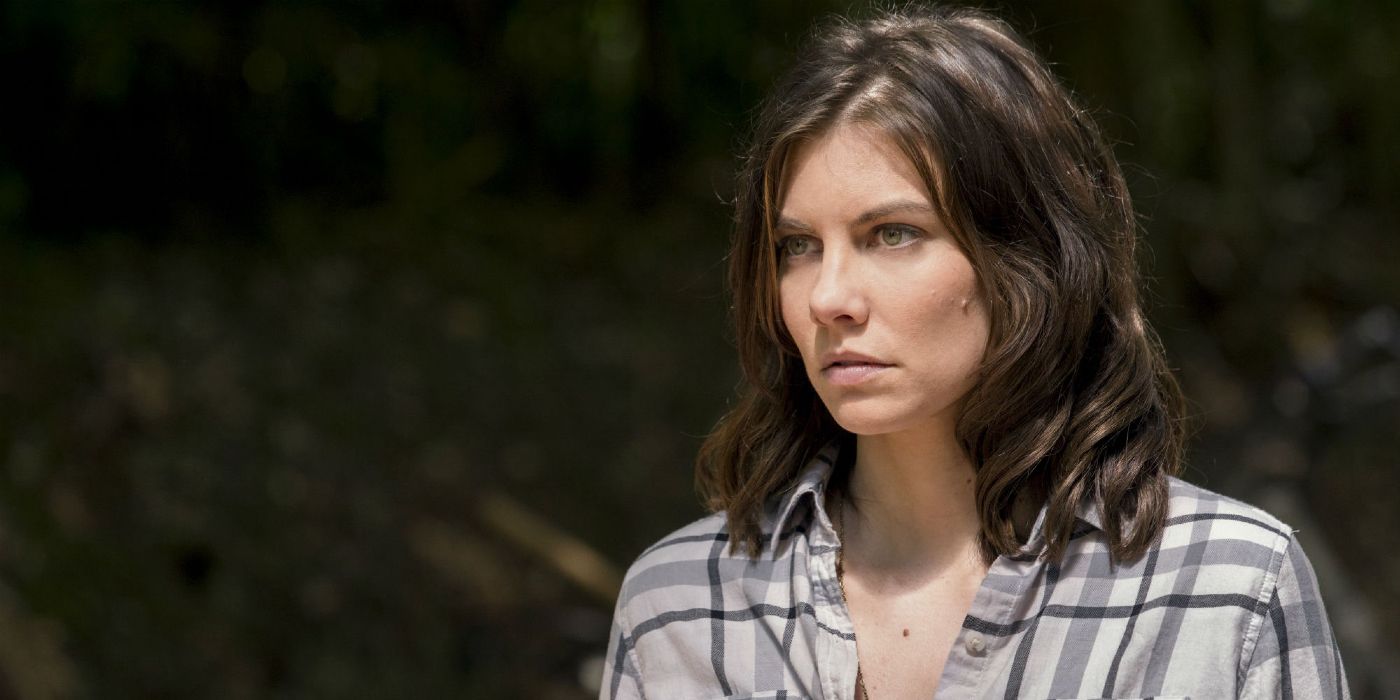
“I had an experience in doing the audition where I read the sides and she was so clear. It was very, very sharp. She was different to me, and she was different to things I'd seen on screen and characters that I'd seen. I just felt like there was something in her — and ironically [she] comes in on this horse — like a grab-life-by-the-reins, and a freedom and a toughness and a tomboyish-ness, but also there was an optimism that I related to. So I went, and when I did the role, I felt excited for how sharp of a character she was, how clear.”
It's a good thing Cohan started in a place of such clarity because as The Walking Dead narrative progressed, Maggie would have her world rocked time and time again.
The Moment Everything Changed for Maggie
“There was just no going back from that.”
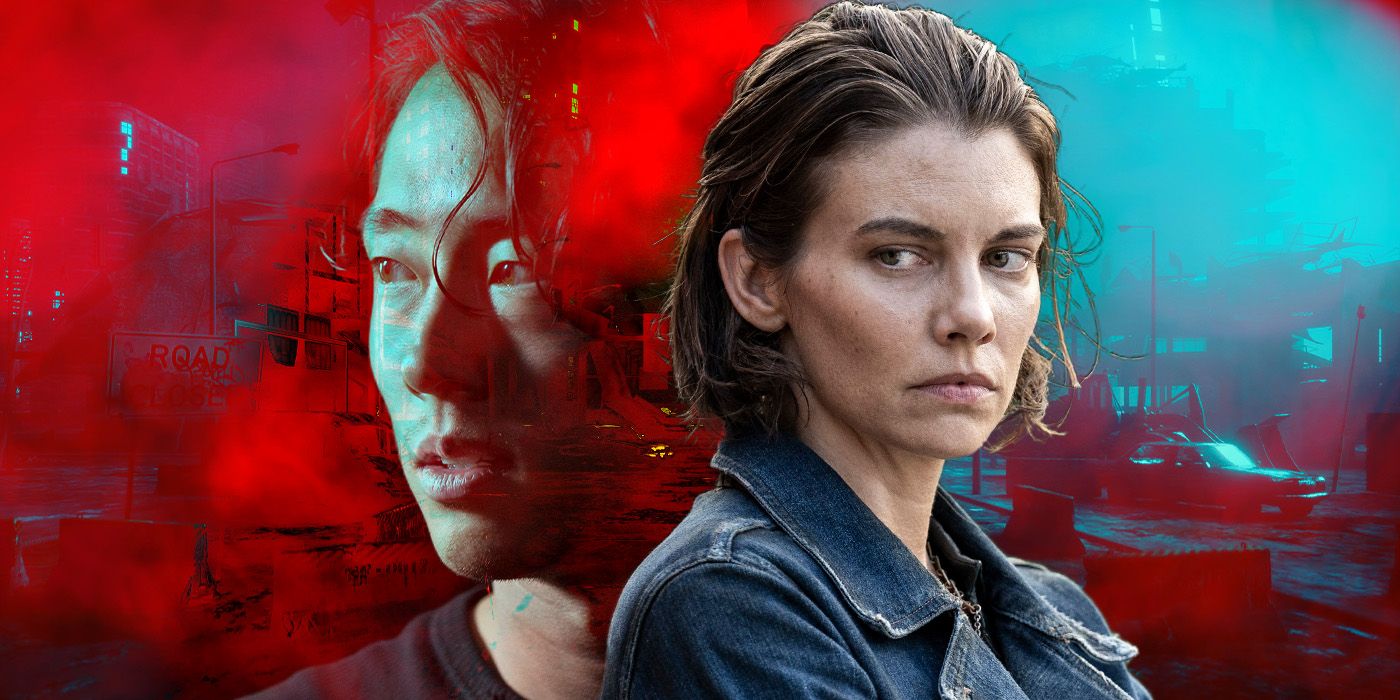
Maggie went through a lot on The Walking Dead, but we all well know the moment that upended everything - Glenn’s (Steven Yeun) downright brutal death at the hands of Negan in Season 7, Episode 1, “The Day Will Come When You Won't Be.” It’s an event that wholly uprooted Maggie’s existence in the main series, and now continues to define much of her arc in The Walking Dead: Dead City.
While the events of Dead City are very tethered to what went down in The Walking Dead Season 7, Episode 1, Cohan and the team are now meeting the challenge of assessing the question, who is Maggie beyond that? Cohan explained:
“There was just no going back from that, and in so many ways. Even now, as we shot Season 2, and as we talk about the possibilities for where to go from here, one of the main tenants is, ‘Who can she be now?’ If we were to say, ‘Stop thinking about her in conjunction with …’ We knew her as Hershel's daughter, we knew her as Maggie and Glenn and their partnership, and then how the loss of that partnership affected her, and then protecting her child, and then being enraged by Negan, and then going through all these stories. Something interesting now is it’s a mother needing to loosen control on her teenage child when her entire identity is wrapped up in it. Now, ironically, year 15, ‘Alright, who is she?’ And I think that that's something that we all go through. It's like, are we defined by our purpose, by who we protect, by all these things?”
Cohan Revisits Her Choice to Leave ‘The Walking Dead’ After Season 8
“I was not afraid and not uncomfortable in that at all, because I knew what I had given to the show.”
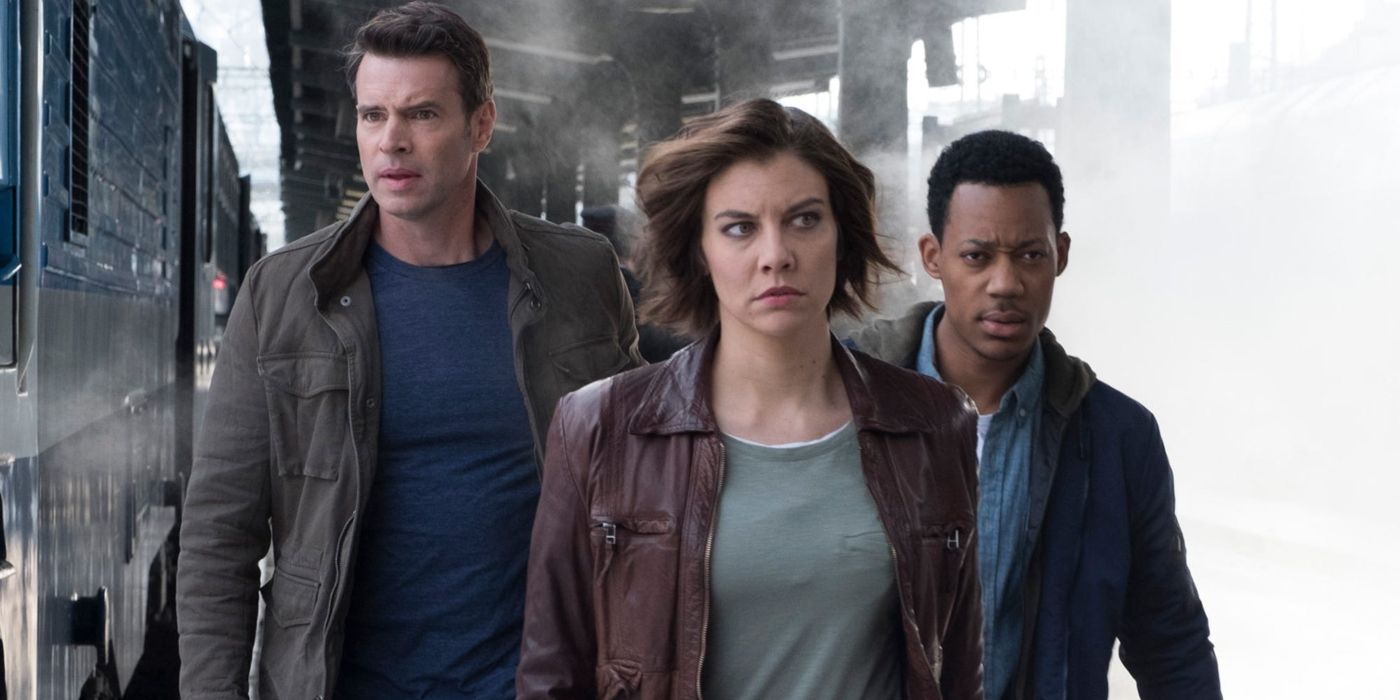
In addition to figuring out who the character is throughout her Walking Dead journey, Cohan also experienced moments of discovering who she is behind the scenes of the show, and within this industry.
Cohan’s Walking Dead contract ended with Season 8. As always, that means it's time to negotiate for a pay raise. Cohan did, but the request was denied. How exactly does one handle such a situation? You’re on one of the most popular shows on television. Do you have the nerve, courage and sense of self-worth to stand your ground and step away? Some might not, but Cohan did.
“It was such a great time. It's weird because there's sometimes ways I let things slide, or I'll laugh along with something, even now, and I'm like, ‘Why’d you do that? That wasn't cool.’ It's not even that I don't wanna rock the boat, it’s just I don't want to fucking give it the time of day. I think a lot of the time it's picking your battles in moments that are not consequential. But for some reason, I was not afraid and not uncomfortable in that at all, because I knew what I had given to the show, and I was at a point where I was like, ‘This is absurd.’ And I left. My contract was up, and I think everybody just said, ‘Oh, no, it's fine. She'll come back, or she'll stay or whatever.’ And I thought, ‘No. I'm gonna go and see what happens.’”
While Cohan wasn’t afraid to make that call, there were some concerns about what would happen next. She continued:
“I had had success before The Walking Dead, but this had definitely put me on the map, and in a show that was something my peers watched. I felt really, really proud to do this show. And yet, you don't know if you matter outside of your show. So, there was definitely a risk for me in saying, ‘I hope I matter outside of this show, and I'm only gonna know if I go and see.’ When I left the show, because we were at an impasse, I got 13 offers to lead my own show. And I don't say that to gloat, I just say that because it gave me faith. There will always be undulations in popularity or reasons that you do and don't get jobs, and I experience that all the time, but it was a great moment because I went and I met so many amazing creators and producers and writers that I was so excited to go do stuff with, and I felt so invigorated. It was twofold, too, because I knew I had done the show for a long time, and I knew it was healthy for me to go do something else.”
That mentality continued when the time came for Cohan to return to The Walking Dead. She explained:
“When I went back, it was because it was healthy for me to go back at that moment. When I went to do Whiskey Cavalier, which was such an incredible experience and so sad that the show didn't get to go for longer, I had talked to Angela Kang, who was our showrunner on The Walking Dead in those years, and she was like, ‘Okay, how do we make this work? If you shoot that show and you come back part-time and do this thing …' And then Angela was also really encouraging and supportive of me directing. She was one of the first people that was really supportive of that. It was a really good shift, and I think that I sort of sometimes just quietly go through things, and then there's a moment and I'm like, ‘Well, what am I gonna do? Am I gonna meet the moment?’ And I don't do that unless it's time, and it was time. So, that was a good experience on that show that was not about the show at all. It was about my relationship with myself.”
Putting on a New Hat While Making ‘The Walking Dead: Dead City’
"We're empowered and we're on the level with you guys."
After advocating for herself in that way while working on The Walking Dead, it was no surprise to hear that she’d be stepping up in a big way yet again by starring in and executive producing her spin-off series, The Walking Dead: Dead City.
“When we came to do the show, I was like, ‘Okay, cool, you want to do a spin-off, but I'm gonna executive produce the spin-off. I'm going to be involved in that way.’ And then I said, ‘I'm gonna do it, and Jeffrey is gonna do it, and you're gonna pay us both this much money. It’s gonna be the same.’ I wanted to go in with him as my teammate and my partner, and I wanted to be like, ‘We are people that know these roles and we're empowered and we're on the level with you guys.’ It was a really, really, really good feeling. We got to just discuss different directions the show could be in and could go in. It was the beginning of something that has, over these three years that we've been doing these two seasons, gradually opened up. It's so never done. It's so just like a little crack and then, ‘Oh! There's another library. Let me go read those books.’ It never stops.”
Here’s How Lauren Cohan Scored Episode 6 for Her Directing Debut
“I was so lucky because it was my favorite episode.”
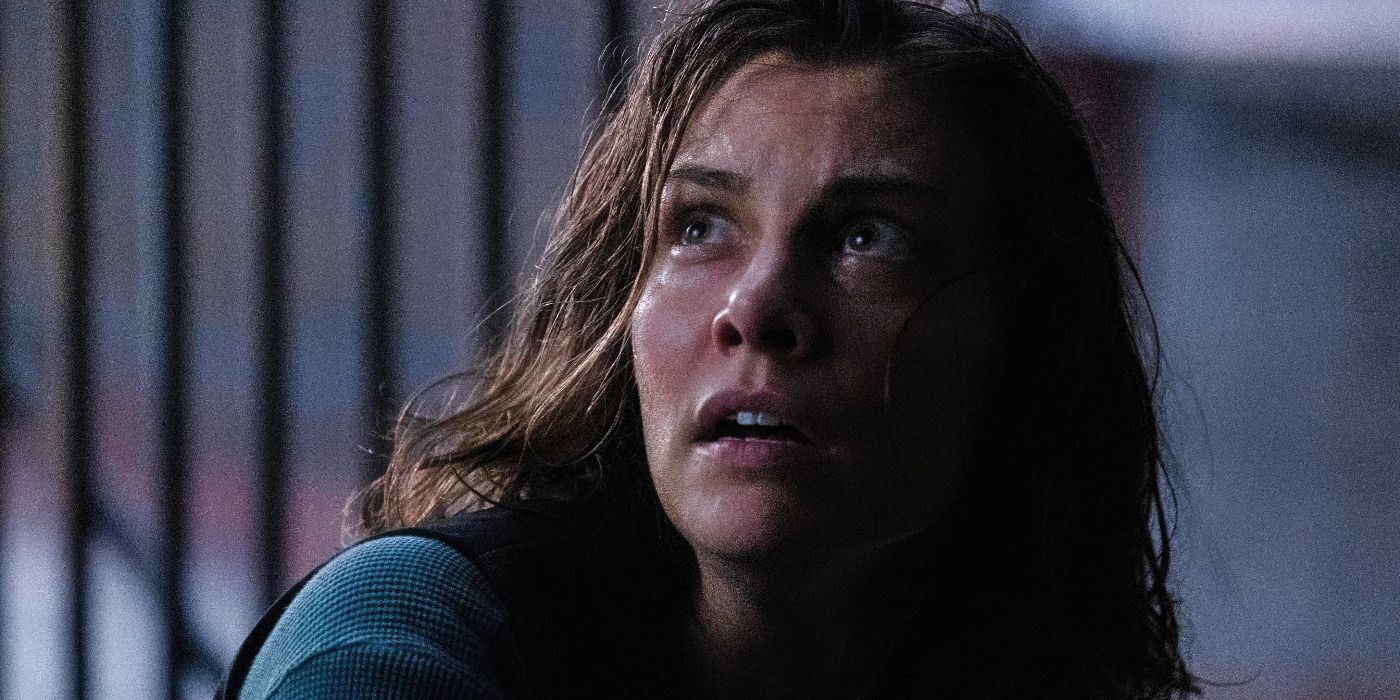
In addition to the endless creative potential for these characters and their stories, there’s also new ways for Cohan to continue to grow as a force in this industry. In Season 2, Cohan got to up her game yet again in a very big way - as a director.
“Episode 6 is my favorite episode in reading this season. The way we worked out the schedule, it was like we knew we were gonna have three directing spots. It was maybe actually even going to be two directing spots, and Mike Satrazemis did the first two. He’s our producing director. We were gonna have someone come in for the middle, and then Mike was gonna do the end. So, when I asked to direct this season, we had to work it out in a way where, because we block shot, I had to share a block with somebody who was there the whole time, which was Michael. So, he did the last three so that I could have one of those. It saved us a lot of money to shoot this way because we get everything done in one location. We shot massively out of order this year. So, the fact that I got Episode 6 was because the production logistics were right.”
Season 2, Episode 6 isn’t any old directing opportunity. It might be one of the most ambitious first-directing experiences one can get.
“I was so lucky because it was my favorite episode. But, would I maybe have gotten that episode as a first-time director when it has the bear in it? When it's a huge episode? I don't know. But the fact that it delivers on emotional, logistical, action, technical, VFX. There are so many aspects in the episode. I was so moved. My greatest responsibility — whatever episode I would have had, I would have felt this — was just, ‘What do I love about it? How do I take that spark and just put it over there and don't interrupt that feeling?’ It was just like, ‘How do I just gently hand it to the viewer?’ It was such a hard experience.”
While it may have been a hard experience, it’s one Cohan excelled with. There’s no doubt she’s a naturally gifted director who deserves more opportunities behind the lens, but Cohan was eager to emphasize what a gift this first directing experience was for her. When asked the final question of Collider Ladies Night, for something she accomplished making The Walking Dead: Dead City Season 2 that she knows she’ll always be proud of, she began:
“That's really funny because I said this to somebody the other day, I was like, ‘Stop right now and just be here right now.’ You asking the question, I think, was the thing. It just was. It just happened just then. It's just like, don't let it all go by. Celebrate it right now. I got to the end of doing that episode, and I didn't even know if there'd be a product of an episode at the end of it, because the experience had been such a reward. And I hope it's a reward for people who watch it, too.”
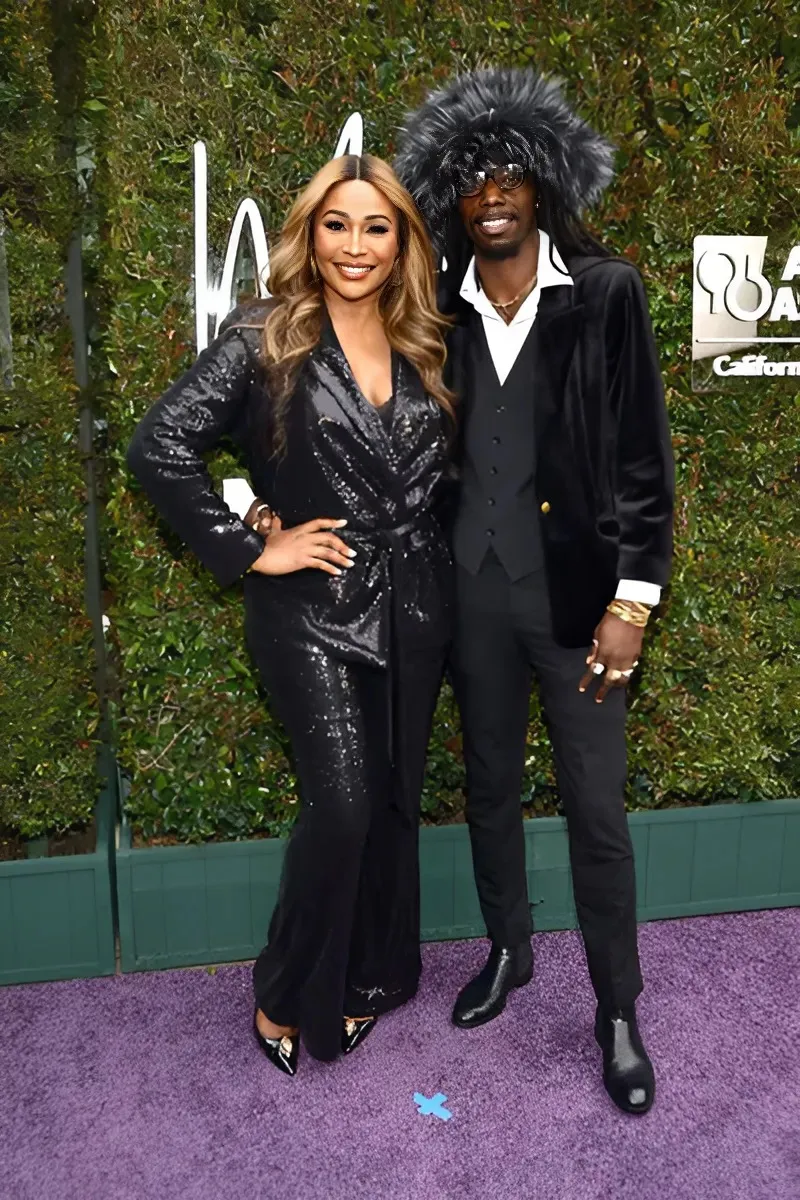
:max_bytes(150000):strip_icc():focal(689x319:691x321)/melissa-gorga-b8ef494a6d664a6da51b85287545c302.jpg)
